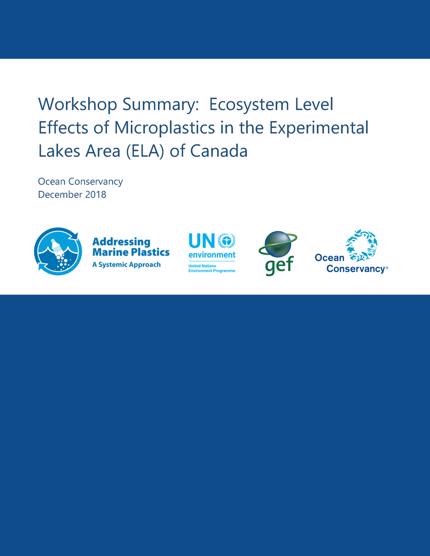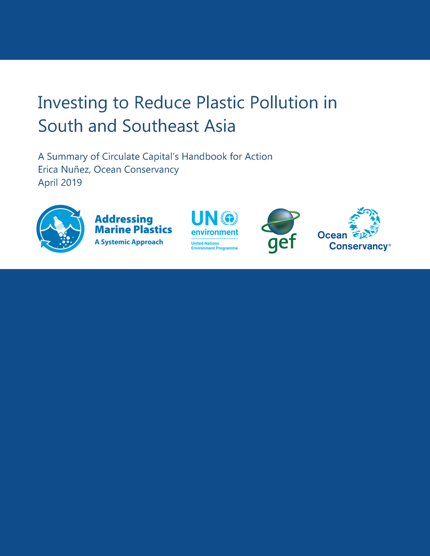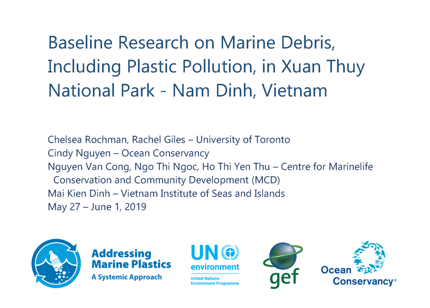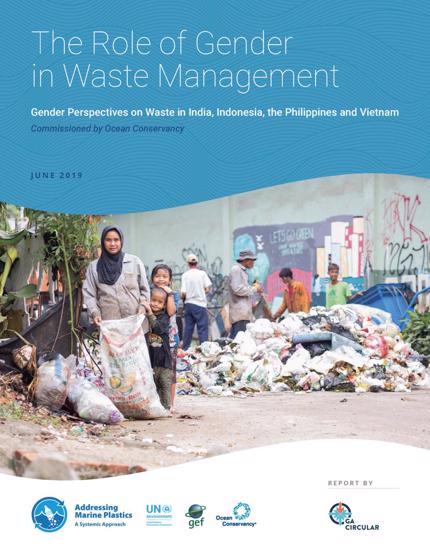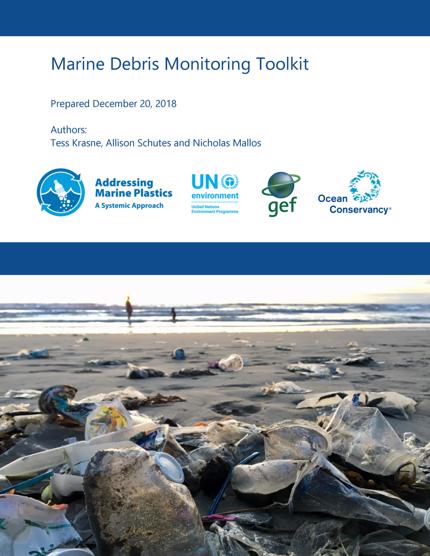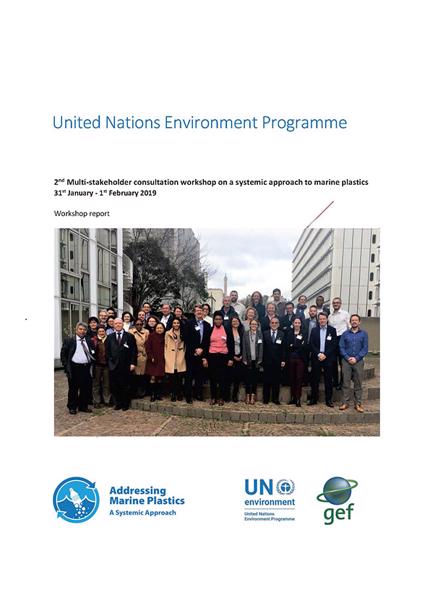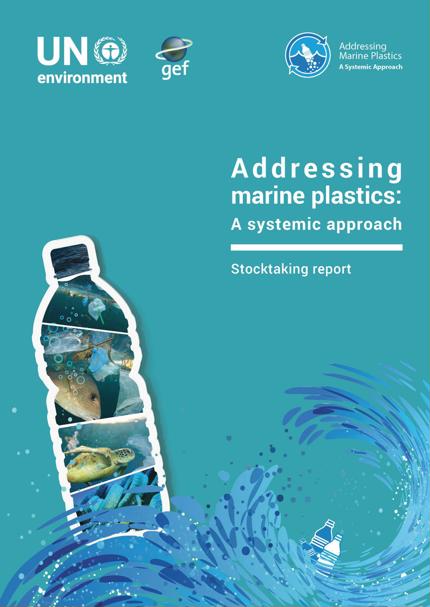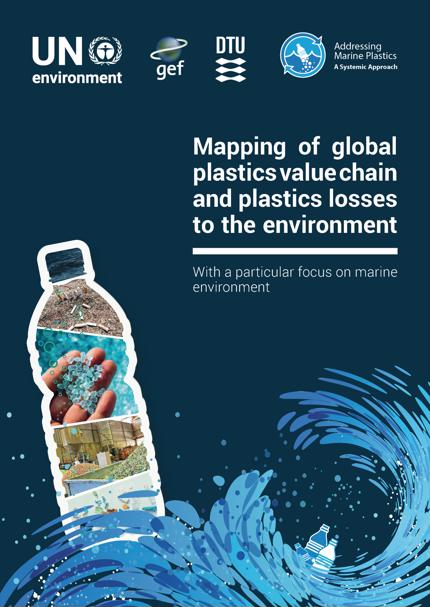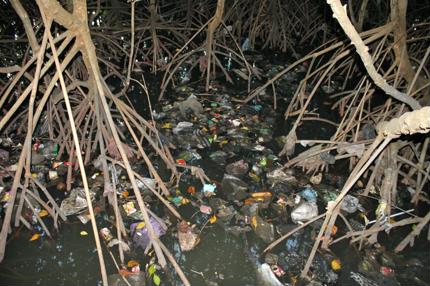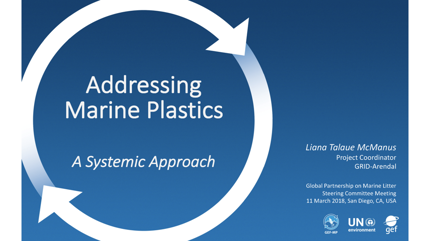Workshop Summary: Ecosystem Level Effects of Microplastics in the Experimental Lakes Area (ELA) of Canada
In December 2018, Ocean Conservancy and University of Toronto convened a group of aquatic ecologists and physical limnologists from the International Institute for Sustainable Development – ELA (IISD_ELA), academia and government to brainstorm and plan for a whole ecosystem experiment on microplastics at IISD–ELA. Using the facility's access to 58 lakes and their watersheds which have been set aside for scientific research, the experiment aims to increase understanding of the ecological effects of microplastics across all levels of biological organization, including any effects on ecosystem processes and their fate within the biological and physical components of an ecosystem.
Investing To Reduce Plastic Pollution In South and Southeast Asia
This brief summarizes Circulate Capital's Handbook for Action, which draws heavily on the assessment done by Circulate Capital on the prospects for investing in the waste management and recycling sectors in South and Southeast Asia countries (India, Indonesia, the Philippines, Thailand and Vietnam). The assessment found that the absence of waste management and recycling companies with strong and transparent track records of profitability, combined with questions about the bankability of infrastructure projects, has prevented institutional investors from allocating capital to waste management projects.
Baseline Research On Marine Debris, Including Plastic Pollution, in Xuan Thuy National Park, Vietnam
The report provides a baseline study of plastic pollution in the Red River Delta, with a focus on Xuan Thuy National Park, comparing the types and distribution of anthropogenic debris from the river to the ocean across the region; and assessing how this debris affect mangroves and mangrove biodiversity.
The Role of Gender in Waste Management. Gender Perspectives on Waste in India, Indonesia, the Philippines and Vietnam
Ocean Conservancy commissioned GA Circular (formerly Gone Adventurin) to conduct a gender assessment of women's roles in the waste collection industries in India, Indonesia, Philippines and Vietnam. The assessment found that women participate both individually and alongside men (as a family unit) in the waste sector. Despite women typically holding more informal roles in the waste sector than men, overall wormen's earning were not significantly different that their male counterparts in the countries studied. While there are some similarities across countries, factors unique to each country necessitate a range of interventions designed to best support female workers in this sector.
Marine Debris Monitoring Toolkit
This Toolkit is designed to assist interested marine debris volunteers and researchers in determining an appropriate survey protocol to carry out their respective marine debris initiative or monitoring project, from among three different monitoring protocols. These include: (1) International Coastal Cleanup (ICC); (2) ICC Brand Data Collection; and (3) Commonwealth Scientific and Industrial Research Organization (CSIRO) Marine Debris Survey Protocol.
Report of the second multi-stakeholder consultation workshop on a systemic approach to marine plastics, 31 January-1 February 2019
This workshop report covers the second expert consultation organised by UN Environment in the context of this project. The workshop built on background research conducted by UN Environment and on the findings of the 1st workshop, which highlighted hotspots, problematic products and polymers, and key areas of intervention along the global plastics value chain, for a systemic approach to marine plastics.
Addressing marine plastics: A systemic approach. Stocktaking Report.
This report takes stock of the extent of knowledge on plastics in the marine environment. It provides a high-level summary of the available literature on the key sources and locations of these plastics, along with an analysis of the problem products and polymers making up marine plastics and micro-plastics. It also looks at what is currently being done to address the problem of marine plastics and summarises existing policy responses in order to lay the groundwork for future action.
Mapping of global plastics value chain and plastics losses to the environment. With a particular focus on marine environment.
This report provides a comprehensive global mapping of plastic losses to the environment throughout the plastic value chain using 2015 as the reference year. This mapping covers plastic production and processing, use of plastics or plastic containing products, and disposal of the products. It differentiates 23 types of plastics and 13 plastic applications, including division between macro- and micro-plastics (including microbeads and microfibers).
Circularity - Keeping Plastic Out Of the Ocean
Newsletter Article for GEF IW:Learn, 22 June 2018
GEF Marine Plastics Presentation to the UN Environment GPA Global Partnership on Marine Litter Steering Committee
11 March 2018, Sixth International Marine Debris Conference, San Diego, California

